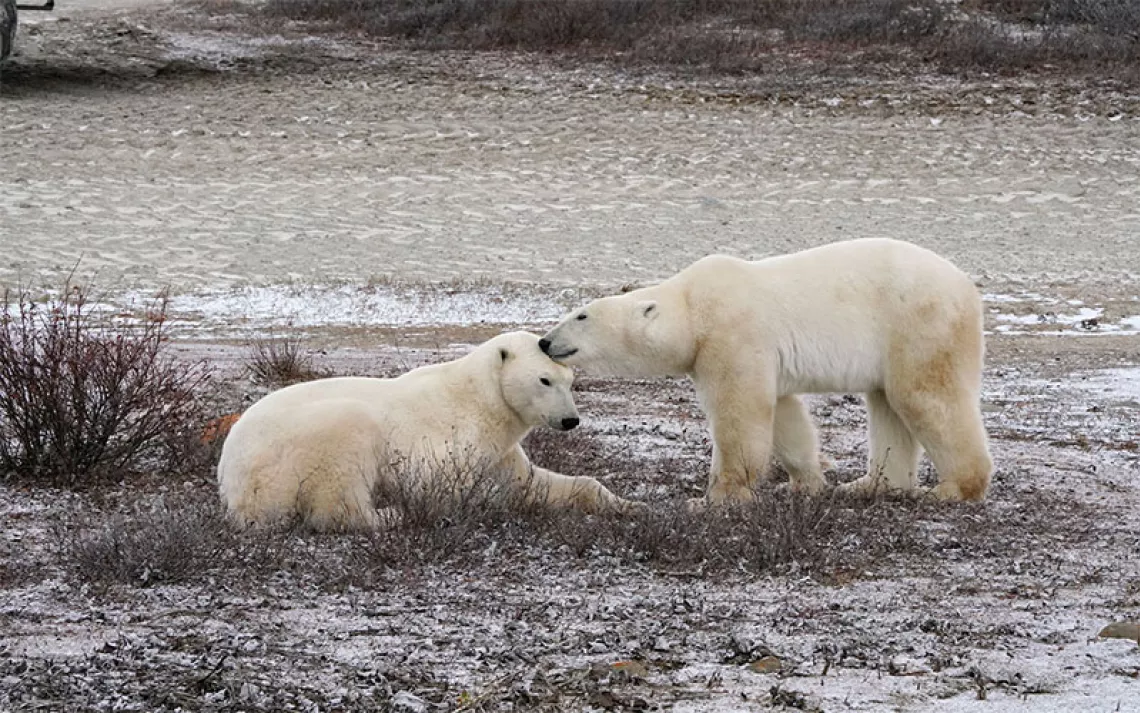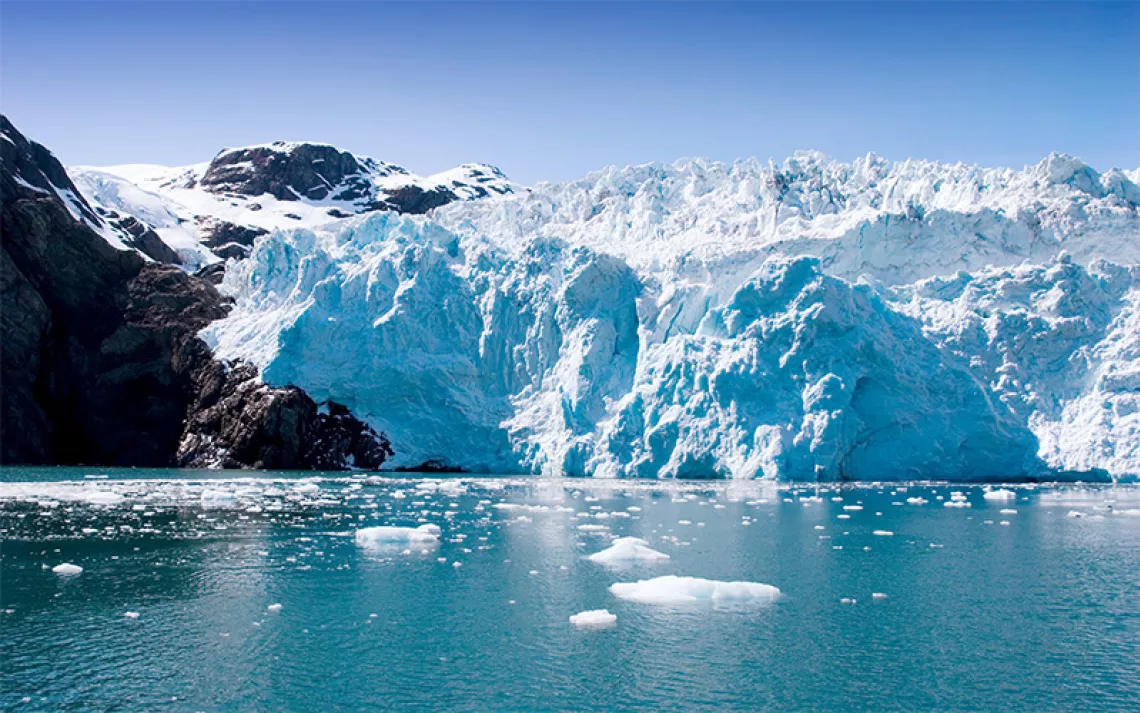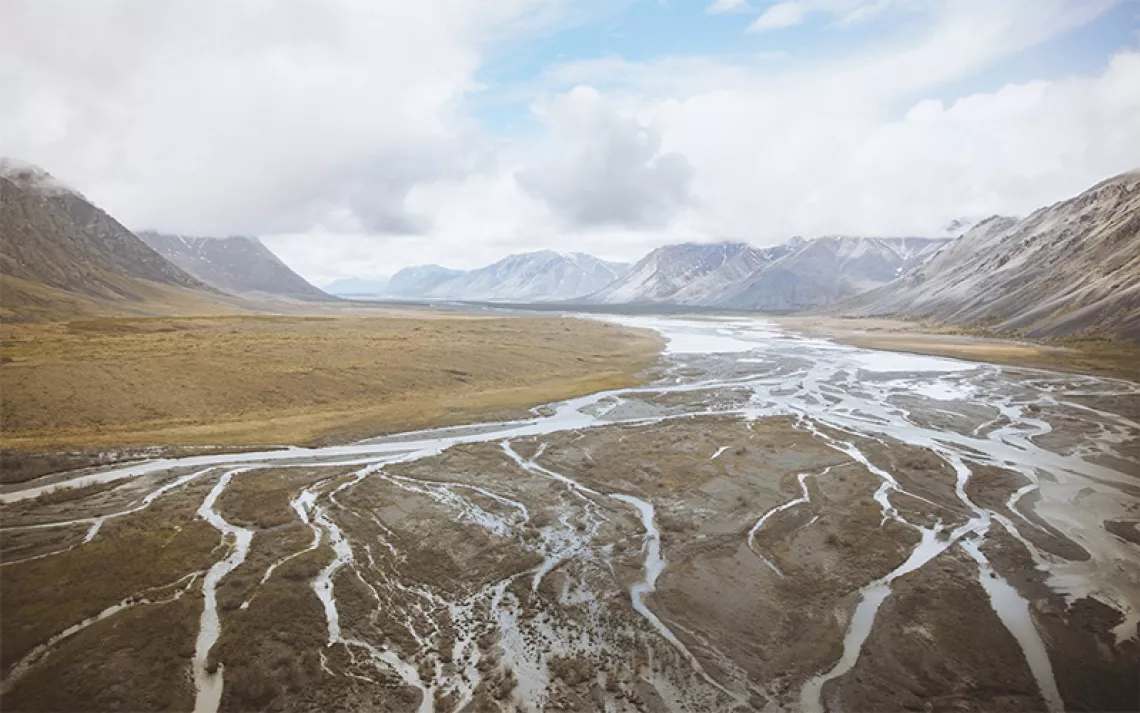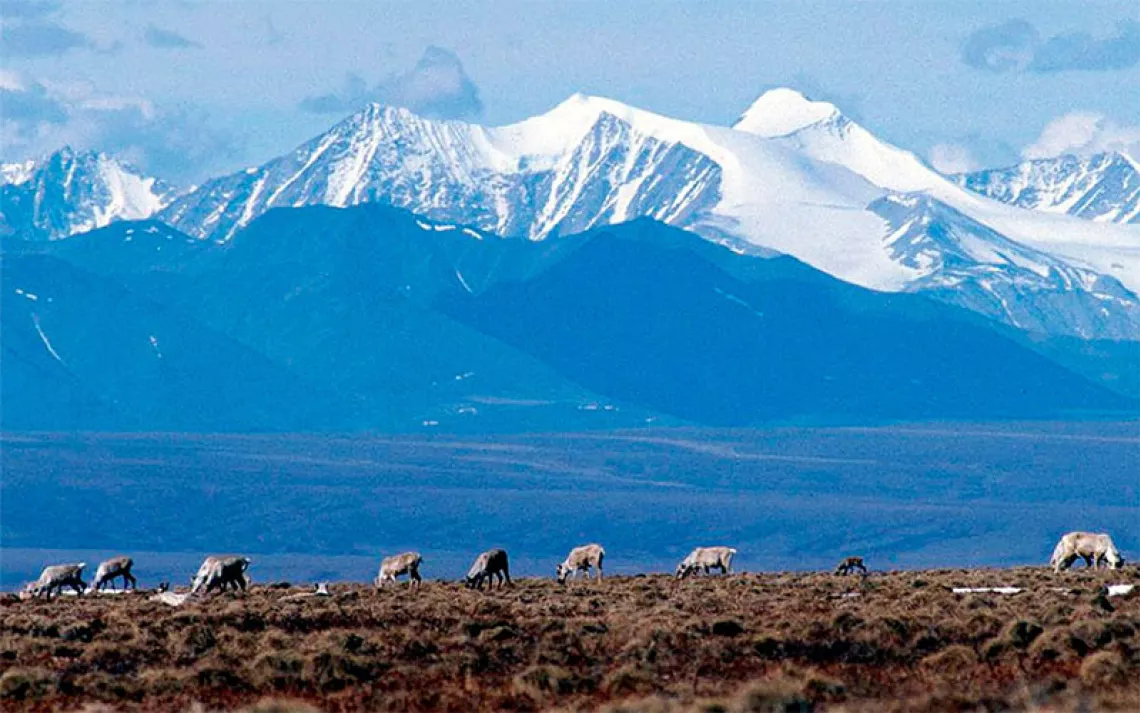What Happens Next With Oil and Gas in the Arctic?
Conservation groups welcome canceled leases in the Arctic National Wildlife Refuge but fear more could be on the way

A herd of caribou in the Arctic National Wildlife Refuge. | Photo by Colin Arisman
When the Biden administration canceled the last remaining oil and gas leases in the Arctic National Wildlife Refuge on September 6, conservation groups applauded, as they saw the move as the nail in the coffin for the first, and so far only, oil and gas sale in one of the country's most sensitive and wild ecosystems. While the state of Alaska is threatening to sue the administration, supporters of the decision to cancel the leases anticipate this will be the first step in getting Congress to end extractive activity in a place where it was never intended to take place.
The optimism and joy from environmental organizations and Indigenous groups are somewhat tempered by the fact that the same law that mandated the 2020 sale requires another sale in December 2024. What's needed now, argues Bernadette Demientieff, the executive director of the Gwich'in Steering Committee, is for Congress to repeal the Arctic Refuge oil and gas program completely to permanently protect the wildlife refuge from any possible future drilling.
"Cancellation of these leases is a step to rectify attempted violence against our people, the animals and sacred land," wrote the Gwich’in Steering Committee on the day the leases were revoked. "The leases were economically infeasible, threatened the Porcupine caribou herd and the Gwich’in way of life, and if developed, would have added to the already deteriorating climate in the Arctic and the world over."
The Gwich’in, along with an array of national environmental organizations and US lawmakers, have advocated for protection in the refuge for decades. But during the Trump era, a Republican-led Congress passed the 2017 Tax Act, forcing the Department of the Interior to open up the Arctic Refuge to fossil fuel interests. The initial sale was a resounding flop due to tepid enthusiasm, but a quasi-governmental state agency, the Alaska Industrial Development and Export Authority, leased seven tracts of land. Two private companies leased and then nixed its leases, leaving the Alaskan corporation as the refuge's sole oil and gas bidder. A similarly lackluster response is expected for next year's sale, given that all major US banks have committed to not fund drilling efforts in the Arctic Refuge.
On the same day the leases were canceled, the Interior Department released a new draft assessment for next year’s sale. The new analysis includes stronger environmental protections and a wider range of options for how oil and gas leases should be conducted in the refuge, standards critics say the previous administration neglected to incorporate into its framework. It also offers fewer acres for sale and limits the area where infrastructure can be built. Advocacy groups have welcomed the draft but hope the Biden administration will adopt even stronger measures that maximize protections for the area while limiting impacts to wildlife, ecosystems, and tribal nations. Among those concerns are issues with threatened polar bears.
"We are concerned that much of the onshore area polar bears use to den are open to leasing and other harmful oil and gas activities without strong enough measures to actually protect denning polar bears," Brook Brisson, a senior staff attorney with Trustees for Alaska, which represents environmental groups in legal cases, said. "The coastal plain is designated critical habitat, and it's being used increasingly for onshore denning as sea ice habitat becomes less and less available because of climate change."
The cancelation of leases and prohibition on drilling have set the federal government up for a legal battle with Alaskan leaders, some of whom have already said they intend to sue. However, Mike Scott, the senior campaign representative for the Sierra Club’s Our Wild Alaska campaign, believes the Interior Department is in a good position to prevail in any court case.
“Our analysis of this is that they are on solid, legal foundations to cancel these leases, and that they have fulfilled the obligations of the Tax Act,” Scott said.
The act places few requirements on the Interior Department other than to hold sales, which has already happened. Both the National Environmental Policy Act and the Alaska National Interest Lands Conservation Act give the federal government the authority to cancel leases if they violate the law, which, in this case, it appears they do. Under NEPA, federal agencies must outline various options with a detailed analysis of environmental impacts. The lack of viable alternatives and missing data on greenhouse gas effects were among the reasons the agency revoked the leases. Legal experts say that these types of cancellations, while rare, are not unprecedented. Notably, in 2017, the Trump administration canceled leases across a 130,000-acre area adjacent to Glacier National Park in Montana.
In addition to curbing oil and gas leasing in the Arctic Refuge, the Biden administration is also proposing an overhaul for management of the National Petroleum Reserve, the country's largest swath of public land at 23 million acres. Under the new proposal, the administration would prohibit new oil and gas exploration across 10.6 million acres. A further 2.4 million acres would be managed in a way that raises the bar for environmental standards, limiting the scope and impact of oil and gas extraction in places with significant wildlife populations, cultural value, or scenic and recreational opportunities.
A collective of conservation groups, including the Sierra Club, Earthjustice, and the Alaska Wilderness League, is currently reading through the thousand-plus pages of the draft environmental analysis for the Arctic Refuge and the reserve. The groups have made clear that there should be no drilling in the Arctic Refuge. But if it happens, the rules should be as restrictive as possible, Scott said. Many of the groups are urging their supporters to weigh in on the proposal to ask the agency to protect wildlife and Indigenous subsistence practices. They also hope the agency will close loopholes that allow oil and gas companies to exploit the Arctic region. The Interior Department is currently seeking comments on both the Arctic oil and gas leasing program and the plan for the National Petroleum Reserve.
"We're going to, with a bunch of other groups, submit technical comments about what we like and what we don't like, and ways that these things can be improved," Andy Moderow, the state director at Alaska Wilderness League, said. "But generally, we're really extremely grateful to the Biden administration for starting these processes for listening to the American public on the importance of these issues and for consulting with communities on the future of lands in the Arctic."
 The Magazine of The Sierra Club
The Magazine of The Sierra Club



